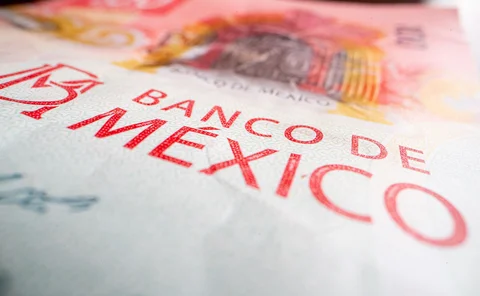Feature
Lifetime achievement: Stefan Ingves
Modest man from the Finnish ‘boonies’ has had a major impact on international central banking
OK regulator? How AI became respectable for AML controls
Dutch court case pressures supervisors to accept new tech; explainability the key challenge
Marks (and sizes and colours) of distinction
Many central banks make an effort to make cash accessible to blind and partially sighted users
Can new BoJ governor Ueda maintain his neutral position?
Kazuo Ueda will face divided views on monetary easing and its growing side-effects when he takes office, writes Sayuri Shirai
Wanted: radical ideas for inflation modelling
Hedge funds echo Mervyn King’s calls for a new approach to inflation modelling post-2022 crisis
Eight key elements to managing a central bank
Former governor Peter Nicholl describes eight critical lessons he learned while developing governance and capacity of the Central Bank of Bosnia and Herzegovina
The behind-the-scenes effort to convert Ukrainian refugee cash
How central and commercial banks worked to allow Ukrainians to exchange cash in wartime
Rethinking the CCyB
As central banks rush to replenish bank capital reserves, the countercyclical buffer may need some fine-tuning
Renminbi and the special drawing rights
What impact does the renminbi’s increased weight and the $650 billion increase in the International Monetary Fund (IMF) special drawing rights (SDR) have for the role of the Chinese currency in reserve management?
Proportionality in bank regulation: striking the right balance
The ‘final’ Basel III framework contains elements designed to make the rules fairer while reducing regulatory arbitrage. This means careful analysis is required when making any proportionality adjustments in the EU single rule book, writes Maurizio…
RCEP and renminbi’s role as a reserve currency
Will the new Asia-Pacific (Apac) economic partnership support the use of renminbi in settlement and as a reserve currency?
Adopting renminbi in reserve portfolios
Central Banking speaks to four reserve managers about investing in renminbi
The ECB’s collateral conundrum
A lack of high-quality collateral in the eurozone has resulted in money market rates lagging ECB policy rates, hampering monetary policy transmission
Central bank assets enjoy ‘99%’ immunity
Why central bank assets possess legal immunity – but not from sanctions
Is the ECB taking the right policy path?
Facing an energy supply shock, analysts ponder whether sharp rate increases and QT alone will serve to bring inflation back to target while avoiding a major recession
Ukraine: the challenges for central banks
Rules on the weaponisation of money would help to protect a ‘public good’ amid geopolitical splits in a testing environment for central banks, write Gavin Bingham, Paul Fisher and Andrew Large
Navigating a new, complex economic environment
In 2021, net assets in exchange-traded funds (ETFs) stood at almost $10 trillion, after inflows of more than $1 trillion
More reserve managers use ETFs
Debate around how investor and ETF behaviour interact during times of market stress continues
Managing risk with ETFs
Central Banking speaks to eight reserve managers about their thoughts on the use of ETFs, faced with market volatility, uncertainty and escalating inflation
ETFs: a gateway to sustainability?
Central banks that prioritise sustainability face a complex investment landscape
Will the dollar remain the world’s reserve currency?
Bank of Russia sanctions are unlikely to undermine the US dollar’s central role in reserve portfolios. But a relative decline in US economic weight and technological innovation are benefiting other currencies
Bank of Mexico’s battle to restore price stability
Despite presidential attacks, former officials say a solid institutional framework preserves central bank autonomy – likely a key asset in the battle against inflation
Banks shock commodities by 1,000% in stress-test rethink
Energy price spikes force clearing firms to consider extreme or even ‘implausible’ scenarios
US Treasury market preps for reporting showdown
Sifma expected to attack transparency plans; prop traders brand objections “crazy”























